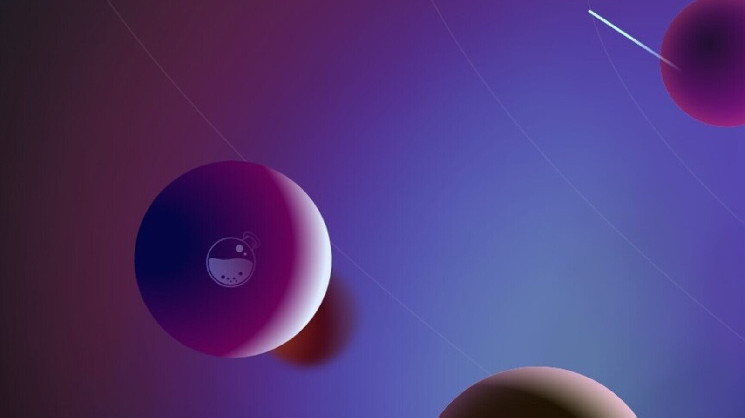Cosmos, the decentralized network powered by Tendermint BFT consensus, has grown considerably in recent years, a consequence of its appeal to blockchain builders and internal development financed by the Interchain Foundation (ICF) to the tune of over $120 million in three years.
Notable for its vibrant developer community, scalability, and the interoperability granted by its Inter-Blockchain Communication (IBC) module, Cosmos is on a mission to establish an Internet of Blockchains that paves the way for seamless data flow between multiple independent, app-specific networks. Little wonder it’s become a popular choice for builders of decentralized apps (dApps), from DeFi protocols and games to infrastructure projects and social networks.
The total value locked (TVL) in Cosmos’ DeFi protocols saw remarkable growth last year, exploding by over 300% to surpass $1 billion. Much of the action occurred on liquidity layer Osmosis, which is now responsible for trading volume of $7.7 billion. Cosmos-based projects like Cronos, Kava, Kujira and THORChain have also helped put the network on the DeFi map, proving there’s life beyond Ethereum and its multitude of L2s.
With 80 Layer-1 blockchains operating in the Cosmos constellation, and countless dApps anchored to them, the ecosystem is in rude health. But which shooting stars are likely to enrich this versatile network moving forward?
Here’s a look at some prospects currently making waves.
Nolus Protocol
Nolus aims to reshape money markets by bringing leasing to DeFi. While borrowing and lending are de rigueur, the protocol represents a different proposition, offering borrowers superior loan terms while significantly reducing the risk of liquidation.
Here’s how it works: Nolus connects to multiple different liquidity sources across chains without fragmenting assets, swiftly swapping on any integrated DEX and streamlining lending by eliminating the need to interact with multiple pools. While lenders get to earn yield on their deposited stablecoins, borrowers seeking access to more capital than their equity allows can do so by putting down a downpayment as they would with a traditional lease: no more exorbitant over-collateralization requirements.
Since launching last summer, Nolus has processed a transactional volume of over $18m, with users impressed by its competitive APYs and favorable borrowing conditions. With support for a range of tokens, Nolus is definitely one to keep an eye on.
Regen Network
Regen Network is a PoS blockchain developed with the Cosmos Software Development Kit (SDK), and it’s fair to say its ambitions are loftier than those of most DeFi projects: specifically, it’s committed to bringing sustainability and environmentalism to the wider Cosmos ecosystem.
Though the project has been bubbling away for many years, by dint of its very pressing real-world preoccupations, it deserves a berth on this list. Regen combines blockchain tech with ecology, offering a venue for users to buy, trade, and retire ecological credits (Nature Carbon Ton, backed 1:1 by carbon credits issued by Verra) in the carbon market. It also enables stakeholders to reach consensus on how to value natural assets like forests, streams, and grasslands through the use of blockchain.
Archway
Having launched its mainnet in July of last year, Archway is hardly a new kid on the block. That said, the incentivized smart contract platform can definitely be classed as a rising star of Cosmos, enabling dApp developers to launch their decentralized applications on the Internet of Blockchains.
A range of interesting projects are being built and deployed within the Archway ecosystem at present, from infrastructure venture Abstract and development platform codeX to the Piña Colada DEX and Astrovault DeFi hub. No wonder the $ARCH token was recently ranked third for seven-day TVL growth in Cosmos.
xCall
Launched late last year, xCall is an omni-chain, platform-neutral messaging standard that can be integrated with any interoperability protocol – including the IBC. Connected to Cosmos networks like Archway and Neutron, xCall provides dApps with a customizable interoperability component, generating revenue through built-in fees and simplifying cross-chain development across the board.
The number of apps and services operating under the Cosmos umbrella is growing all the time, making the interchain stack an attractive developer environment for web3 builders. Thanks to these projects and others, Cosmos is well-positioned to drive further user adoption in 2024 and beyond.

